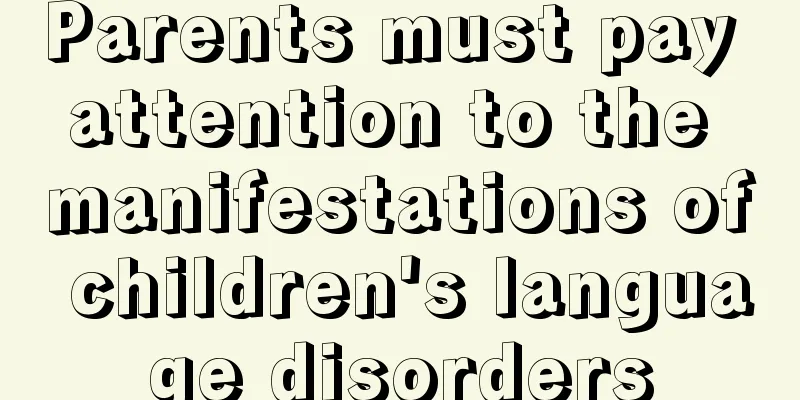What causes nosebleeds in three-year-old babies?

|
Normally, babies rarely have nosebleeds before the age of two, unless they have serious blood system diseases. After the baby reaches the age of three, there will be more and more blood vessels in the nasal cavity, and nosebleeds will be more likely to occur. There are many reasons behind this, such as the influence of seasons, and may also be affected by factors such as diet and living environment. What causes nosebleeds in three-year-old babies? 1. The nasal mucosa of young children is fragile. In dry weather, more blood needs to flow through the nasal cavity to increase the temperature and humidity, which can easily cause congestion of the nasal mucosa and lead to bleeding. 2. Trauma caused by children's strong activity, they are easily bumped or hit hard while running and jumping, causing the fragile nose to bleed. Putting foreign objects into the nasal cavity while playing can also easily cause nosebleeds. 3. Picking the nose with hands. Young children with allergic rhinitis or colds will have itchy noses due to runny nose and nasal congestion, which may cause sneezing or picking the nose with fingers, causing injury and bleeding to the fragile nasal mucosa. 4. Abnormal lifestyle and work schedule. Many children are prone to nosebleeds due to irregular lifestyle, less sleep, weak body, etc. Children who suffer nosebleeds due to irregular work and rest schedules usually also have a lot of eye and nasal mucus and bad breath. 5. Allergies caused by allergies are particularly obvious in winter. Nosebleeds are also easily caused by the fragility of the nasal mucosa and the dry cold air in winter. Most babies who are prone to nosebleeds have symptoms of allergic rhinitis, because the nasal mucosa of allergic rhinitis often has erosion symptoms, and they often rub their noses due to itching, causing injury to the nasal mucosa and bleeding. 6. Caused by other diseases Clinically, certain systemic diseases such as abnormal coagulation factors or tumors in the nasal cavity can also manifest as "nosebleeds" in the early stages. If your baby often has nosebleeds for no reason, it may be a sign of certain diseases. You should take him to an ENT doctor to find out the real cause. Some medicines contain anticoagulant properties, which may cause nosebleeds during use. Babies with weak constitutions or those suffering from blood diseases such as leukemia and hemophilia are prone to nosebleeds. |
<<: How to deal with children’s nose bleeding due to picking their nose?
>>: Why do children suddenly have nosebleeds in summer?
Recommend
How big is the baby's hernia surgery?
Hernia is a very common phenomenon, especially in...
How to treat chapped lips in children?
In autumn, due to the dry weather, many children ...
What is the treatment method for spleen deficiency in children?
If a child suffers from spleen deficiency, it is ...
What to do if your child gets angry in winter? Here are some tips to reduce the fire
In winter, the climate becomes particularly dry, ...
Low neutrophil count in children
If a child only shows low neutrophil count during...
Why does my baby love to kick the quilt?
First of all, it is very common for babies to kic...
What is the cure for blisters on children's fingers?
There will always be various problems when a chil...
What to do if your two-month-old baby has a red bottom
The baby's skin is delicate and tender, and t...
What are the symptoms of cerebral palsy?
Cerebral palsy is a disease that is difficult to ...
How long does it take for a child to walk after a broken leg?
The symptom of a broken leg in a child is quite s...
What happens if a newborn is too warm?
After a child is born, parents are always afraid ...
How long does amoxicillin remain in a child's body after four days of anti-inflammatory injections?
Generally, anti-inflammatory drugs and other drug...
Can I bathe my baby right after waking up?
Babies also need to take a bath regularly, otherw...
How to make blueberry puree for baby food
For some babies, you can give them some fruit pur...
What to do if your newborn baby has a blocked nose
The breathing of a newborn is a particularly impo...









